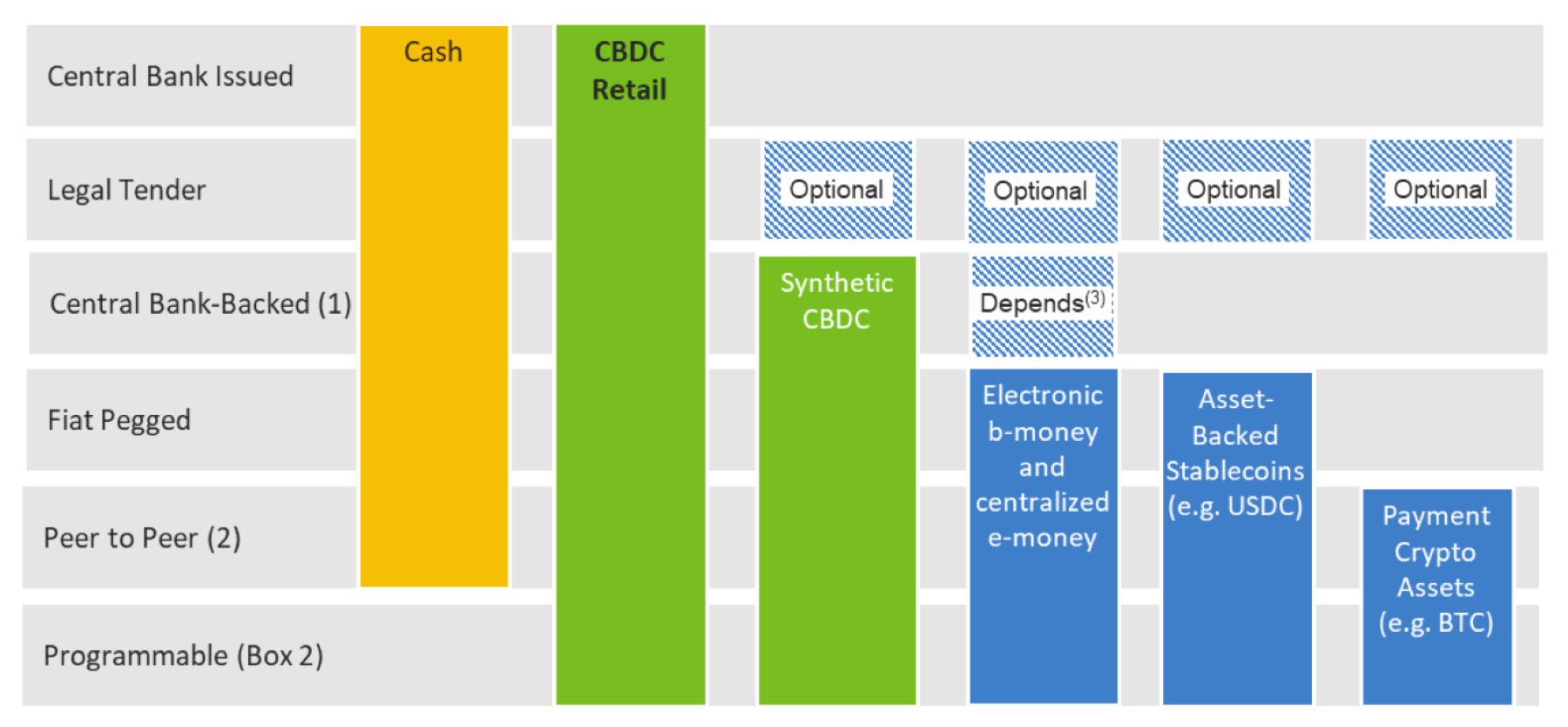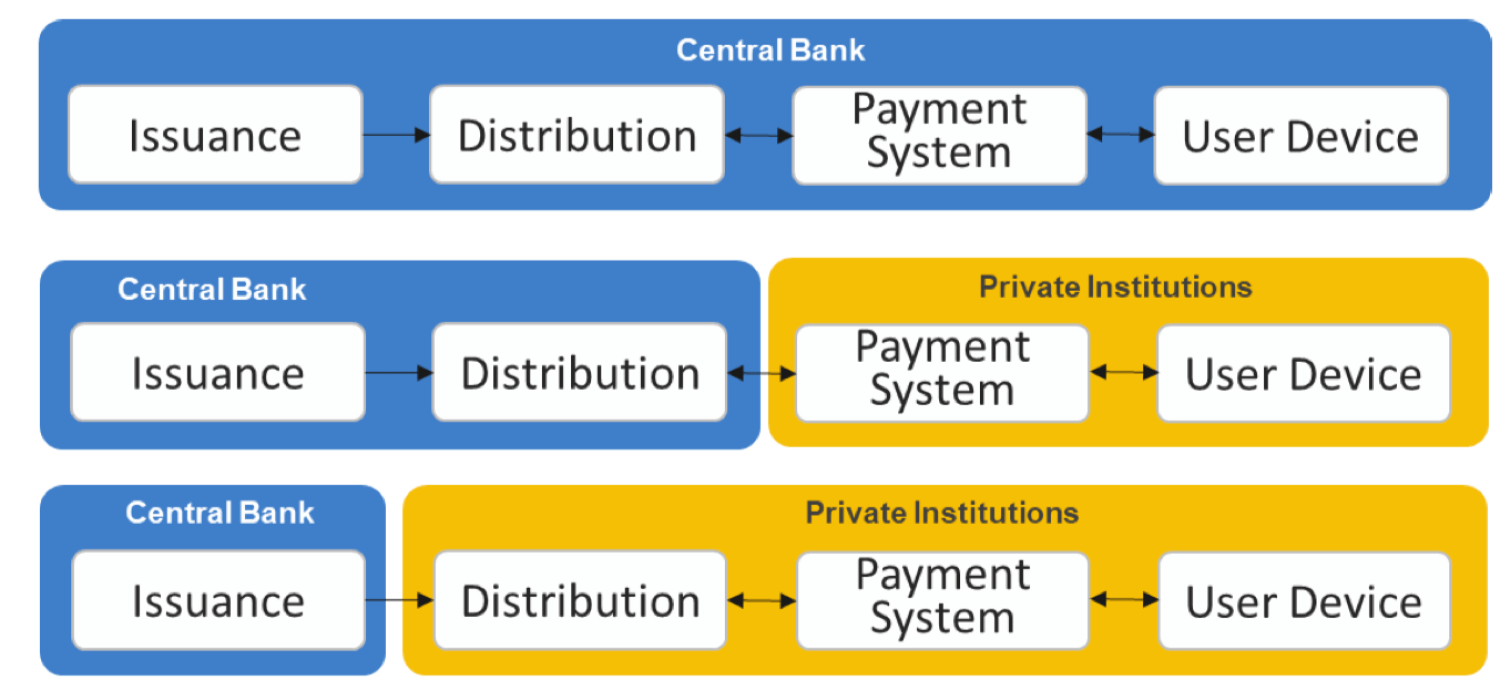ECOM6013 E-Commerce Technologies #
Topic 8 Blockchain and Cybercurrency #
Form of Money
- Token money
- Physical token
- Value is lost without the token
- No intermediary is required for spending
- Requires faith in the issuer (a government or a bank)
- Notationary money
- Notation/entry in a ledger, passbook, or database
- Can’t be lost
- Requires an intermediary
- Requires faith in the maintainer of the ledger
- Hybrid money
- Requires both a token and a ledger account
- Can be lost
- Requires an intermediary
- Requires faith in the issuer
- Virtual money
- No token/ledger
- Can be lost
- No intermediary required
- No issuer, no government backing
- Digital money
- String of bytes (data) stored on a device
- Value is lost/stolen when devices fail/invaded
- Cybercurrency
- Bitcoin is the most influential one
- Based on blockchain
Bitcoin
- Designed for the "online society"
- An important example application of Blockchain
- Relationship with national currencies
- Decentralized and independent of national currencies
- Easily convertible to national currencies
- Excellent application Scenarios
- Anonymous transactions
- E-Commerce
Land Deeds - A Blockchain Analogy

- A "chain of title" (a sequence of deeds leading from the original owner to the present owner)
- Deeds are recorded in the Land Registry
- Ownership is established by searching the Registry
- The Land Registry is ledger holder
- Double-selling is prevented by timestamps
- If the Registry is altered, ownership can be lost
5 elements of Bitcoin
- Currency
- Send units of value
- Convertible
- Divisible
- Commodity
- Scarcity stores wealth
- Market fluctuates with speculation
- Brand
- Marketing message
- Commodity and sharing knowledge
- Protocol
- Decentralized trust
- Distributed ledger
- Technology
- Blockchain
How to Get Bitcoin
- Sell something
- Salary (some companies)
- Bitcoin exchange
- Mining
- No more than 21 million BTCs
- Divisible into units as small as 1/100 millionth of a BTC
Bitcoin and Encryption Technologies
- Hash functions
- Public-private key (asymmetric) encryption
- Digital signatures
- All of these technologies are mature and trusted
Bitcoin Characteristics
- No physical object (not a character string)
- "Bitcoin" - protocol
- "bitcoin" - value
- A chain of digitally signed transaction records leading from the original owner to the current owner
- Transaction records
- Hashes
- Addresses
- No Bitcoin registry
- No central authority
- Broadcast to everyone
- Everyone can verify the Bitcoin blockchain
Bitcoin Protocol
- Invented in 2008 by Satoshi Nakamoto, Bitcoin: A Peer-to-Peer Electronic Cash System
- Publicly available, Open source software
- Everyone can obtain and run a Bitcoin client
Bitcoin addresses
- An elliptic curve public key
- 25-44 characters for users
- Send Bitcoins
- Receiving address (public)
- Amount
- Receive Bitcoins
- Receiving address (public)
- Addresses are not directly registered to users
Possible Vulnerabilities
- No way to reverse a transaction without the payee’s cooperation
- Software bugs
- Bank robbery by hackers
- Malware attacks against wallets
- Government attempts to control
- Competing digital currencies easy to make (fork)
- Auroracoin
- Dogecoin
- Namecoin
- Primecoin
- …
Challenges for Bitcoin
- Scalability
- Time to solve a block (security concerns in algorithms)
- Energy consumption
- Meaningless and highly inefficient
Possible Future of Bitcoin/Virtual Currencies (Social)
- For the world’s unbanked
- For small businesses, freelancers and startups
- Inevitable development of "money"
- Distributed trust
Possible Future of Bitcoin/Virtual Currencies (Economic/Political)
- A future with digital currencies and decentralized stores
- National adoption of decentralized currencies may bring political transparency and economic neutrality
- Developing nations seeking to curb corruption and break free of economic dependence on other countries could see potential in these technologies
- Central Bank Digital Currency (CBDC)
Retail Money Key Attributes

Different Degrees of Responsibilities for the Central Bank
